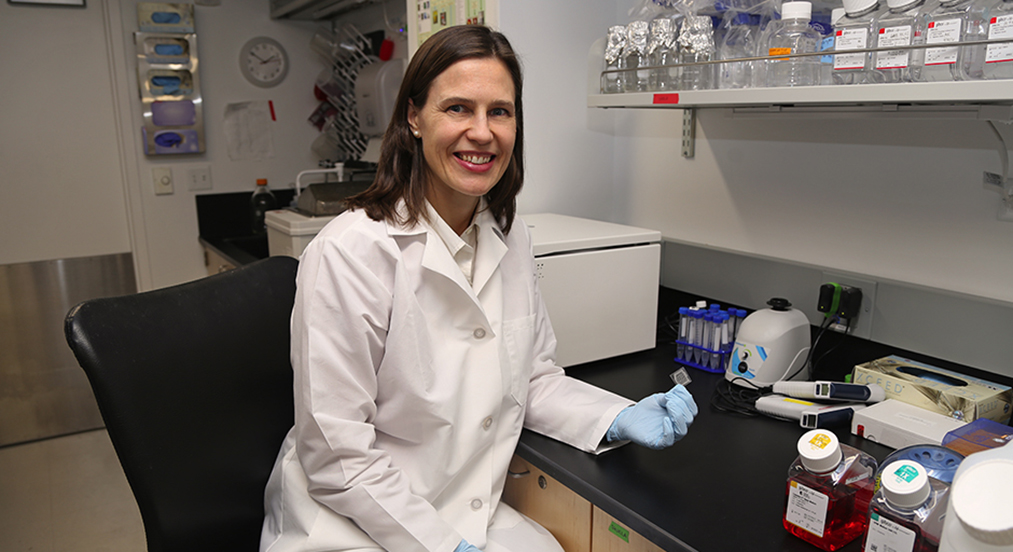 Brown University Assistant Professor of Engineering Kareen Coulombe has been awarded a five-year $2.27 million grant from the National Institutes of Health. Her research proposes to develop an engineered human cardiac tissue therapy that addresses pressing needs for translational implementation by using human cardiomyocytes in natural hybrid biomaterials.
Brown University Assistant Professor of Engineering Kareen Coulombe has been awarded a five-year $2.27 million grant from the National Institutes of Health. Her research proposes to develop an engineered human cardiac tissue therapy that addresses pressing needs for translational implementation by using human cardiomyocytes in natural hybrid biomaterials.
Cardiac disease remains the leading cause of morbidity and mortality in the U.S. and around the globe. Engineering human myocardium as a therapeutic means to restore muscle mass has great promise to enhance heart function, yet the current lack of integration of engineering tissue into the native heart limits its efficacy.
Coulombe specializes in cardiovascular regenerative engineering to address needs to develop novel therapies for cardiovascular disease. A major focus of her research is to re-engineer contractility in the heart after myocardial infarction (heart attack) using engineered human myocardium with cardiomyocytes derived from human induced pluripotent stem cells. The engineered tissue has electromechanical function and her lab works to improve the vascular and electromechanical integration of the implant with the host heart in order to restore cardiac contractility.
Coulombe earned a B.S. in biomedical engineering at the University of Rochester summa cum laude in 2001 and was a Whitaker pre-doctoral Fellow, earning a Ph.D. in bioengineering at the University of Washington in 2007. She was an NIH Ruth L. Kirschstein post-doctoral fellow in pathology at the University of Washington where she won an NIH Pathway to Independence K99/R00 award in 2012. She joined the Brown School of Engineering as an assistant professor of engineering and medical science in January 2014.

NIH is the largest public funder of biomedical research in the world, investing more than $32 billion a year to enhance life, and reduce illness and disability. NIH-funded research has led to breakthroughs and new treatments, helping people live longer, healthier lives, and building the research foundation that drives discovery.